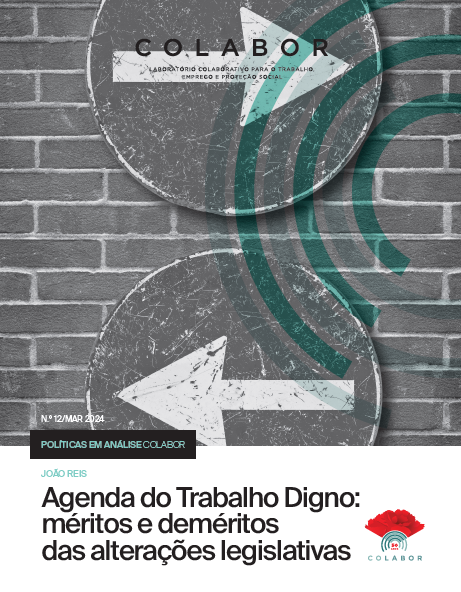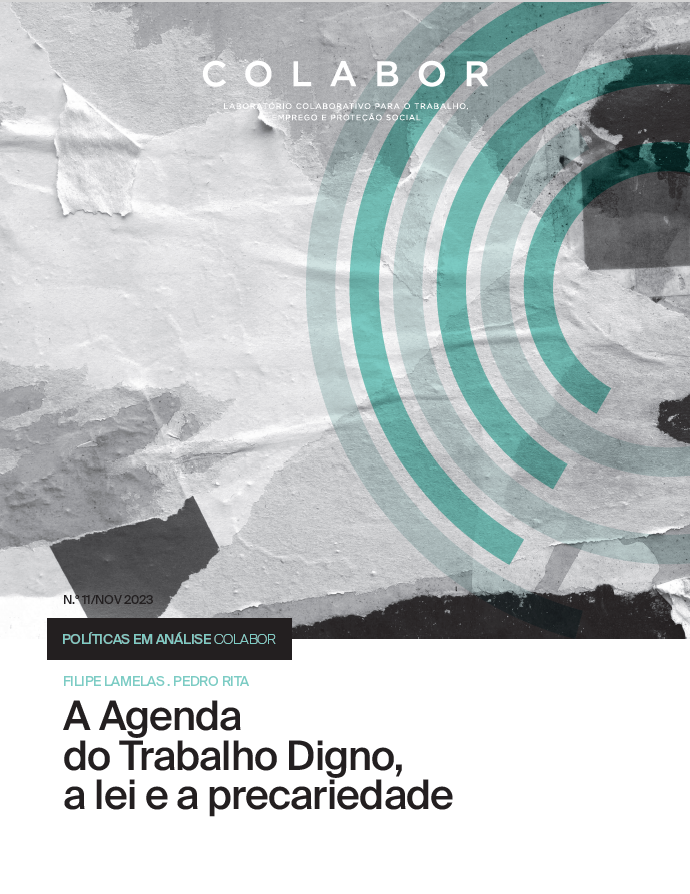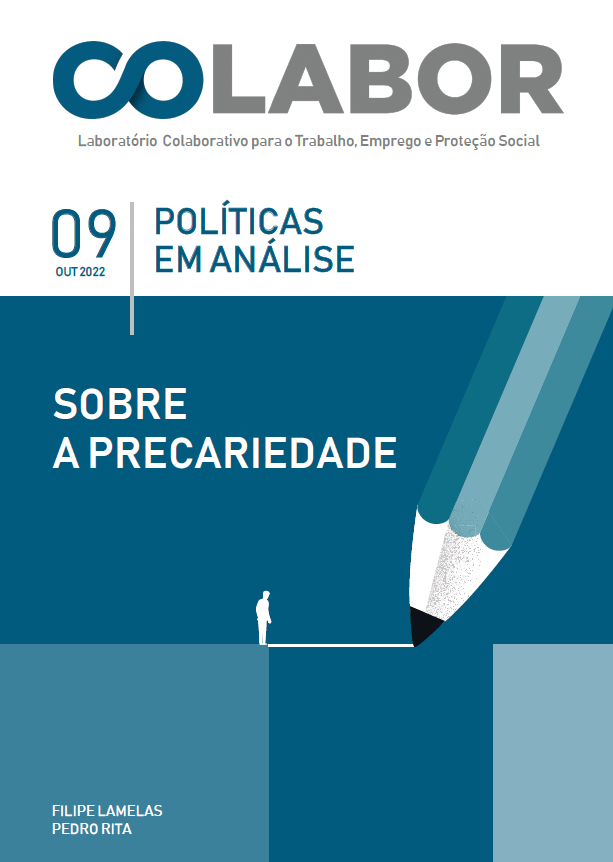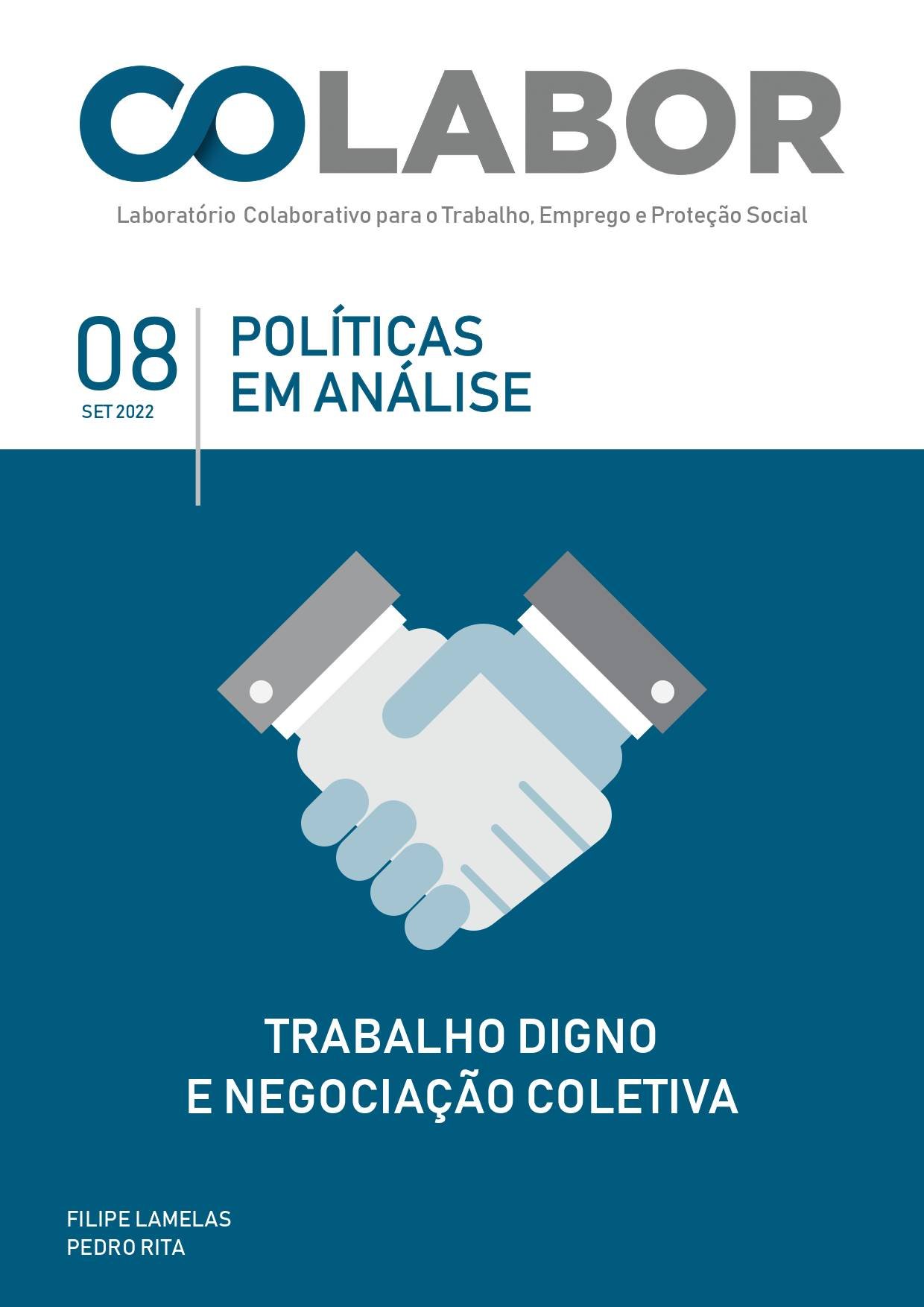
Policies in Analysis

Decent Work Agenda: merits and demerits of legislative changes
Policy No. 12 - "The Decent Work Agenda: merits and demerits of legislative changes" - is the result of a paper presented by Professor João Reis, Professor of Law at the Faculty of Law of the University of Coimbra (FDUC), at the event promoted by CoLABOR entitled "Decent Work. Context and readings of the agenda".
In addition to analyzing the main merits and demerits of the legislative changes introduced in the Decent Work Agenda (Law no. 13/2023, of April 3), this text also mentions the fact that some rules that undermine the dignity of workers have been retained in the Labor Code.

The Decent Work Agenda, the law and precariousness
Policy 11 is dedicated to the theme "The Decent Work Agenda, the law and precariousness".
While acknowledging the relevance and usefulness of many of the changes to the Labor Code introduced by Law 13/2023 for job stability and security, it cannot be denied that the goal of decent work has not been achieved with the recent revision. This text carries out this critical analysis.

The ban on outsourcing services in the 2023 labor reform
The ban on hiring outsourcing services to meet the needs of workers whose jobs have been covered by collective dismissal or job extinction, set out in the Decent Work Agenda, was included in Law no. 13/2023, of April 3, which amends the Labor Code.

On precariousness
The right to job security is a structuring principle and its constitutional enshrinement entails the recognition that the right to work has a human dimension, of personal fulfillment and, as such, removes from the arbitrary availability of the employer, not only the free termination of the employment relationship, but also any substantial modification of the content of the employment relationship.
The Decent Work Agenda should not ignore the fact that the strategy to combat precariousness - which has different expressions - benefits from a framework in the constitutional objective of promoting job security, which, not limited to merely combating precarious employment relationships, extends to other aspects of the employment relationship, thereby reinforcing the broader meaning of the concept of precariousness.

Decent work and collective bargaining
The debate around the Decent Work Agenda is one of the most important political moments of this decade, whose lines of reflection will help define the direction of labor reforms, with social and economic implications that will be projected into the future, with collective bargaining taking on an unavoidable centrality in this Agenda.

From the Decent Work Agenda to the government program
The area of work and labor relations, due to its social, political and economic importance, is one of the structuring vectors of any government strategy. Underpinned by the ideas of decent work and valuing workers, the Agenda identifies a number of issues and aims to restore a fairer model of labor relations, despite the omission of key issues to promote dignity at work and job security.
